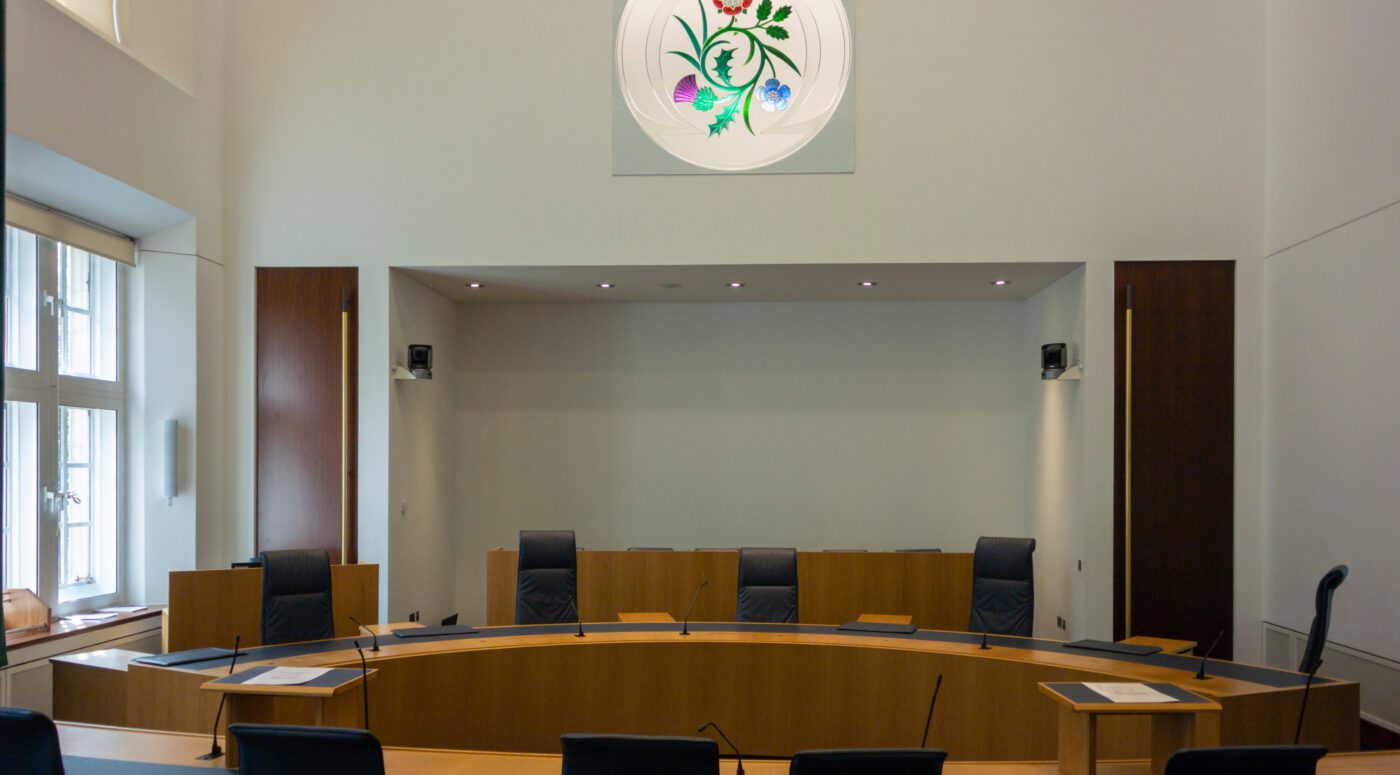

In the previous decade, the UK government has passed many laws strengthening its response towards knife crime, including increasing the punishment that you could face if you are caught with a knife in a public place. In the year ending March 2021, there were 41,000 reported offences of knife crime. The good news is that if it is your first knife possession offence, particularly if you were a child at the time that it was committed, you have a chance of avoiding jail time. This will, however, depend on the view that the court takes to your case, and especially to your personal circumstances and the risk that you are perceived to pose to society. This article explains the offences concerning possession of a knife in public, and the sentence that you could face if you are convicted for the first time.
What is the offence of carrying a knife in public?
It is illegal to carry a knife in public without good reason, unless it has a manual folding blade less than 3 inches long (e.g. a small Swiss Army knife). This includes lock knives. Lock knives are a type of knife with a blade that can be locked and refolded by pressing a button. This can include some multi-tool devices, therefore it will be illegal to carry certain types of multi-tool devices in public. A good reason could include if you are taking the knife to your place of employment for use at work, taking it to a gallery or museum to be exhibited, using it for theatre, film, television, historical enactment, or religious purposes, or if you are carrying it to use it in a demonstration or to teach someone how to use it.
The relevant offences are:
- Possessing an offensive weapon in a public place, pursuant to Section 1 of the Prevention of Crime Act 1953.. This offence covers the possession of knives made for the use of causing injury to the person, e.g. a butterfly knife.
- Possession of an article with a blade or point in a public place, pursuant to Section 139 of the Criminal Justice Act. This offence covers possession of all other types of knives that do not fall into the pocket knife category set out above.
- Offences relating to carrying a knife in prison are dealt with by Section 40CA of the Prison Act 1952.
It is also an offence to possess an article with a blade or point or an offensive weapon on educational premises, pursuant to Section 139 of the Criminal Justice Act 1988.
What other offences are there in relation to knives?
Banned knives
There are also several other knife-related offences that may be relevant to your case. Some knives are banned altogether. For these knives, it is illegal to import, export, buy, sell, or possess them. According to the government’s published list, this includes:
- Butterfly knives (balisongs): a handle that splits in the middle to reveal a blade
- Disguised knives: a knife that looks like another object such as a lipstick, hairpin, buckle, or hairbrush
- Flick knives or gravity knives
- Stealth knives
- Zombie knives: this is a type of knife inscribed with words or images suggesting that it is used for violence
- Swords with a curved blade over 50cm (there are some exceptions for certain antiques)
- Sword stick: this is a hollow walking stick or cane containing a blade
- Push dagger: a knife where the handle fits within a clenched fist and the blade goes between the fingers
- Blow pipes: a hollow tube through which hard pellets or darts are shot by the use of breath
- Telescopic truncheons: a knife that extends automatically or by pressing a button or spring
- Batons: these are a form of truncheon
- Hollow kubotan: these are a cylinder-shaped container containing spikes
- Shurikens: these take the form of a plate with three or more sharp radiating points
- Kusari gama, kusari, and manrikgusari: these are forms of traditional Japanese weapon comprising a chain connected to a heavy iron weight
- Kyoketsu shoge: this is another Japanese weapon that is a double-edged blade with another curved blade attached near the hilt.
- Handclaws: this is a band of metal bearing spikes that is worn on the hand
- Footclaws: this is similar to the hand claw, but it is worn on the foot.
- Knuckledusters
- Cyclone or spiral knives
- Belt buckle knife
Selling a knife to a child
It is an offence to sell a knife to a child under the age of 18 unless it has a manual folding blade less than 3 inches long. In Scotland, however, children between the age of 16 and 18 are allowed to buy cutlery and cooking knives.
Using a knife in a threatening way
According to Section 1A of the Prevention of Crime Act, it is an offence to use a knife in a threatening way. You commit this offence if you are in possession of an offensive weapon in public, you unlawfully and intentionally threaten another person with it, and you do so in such a way that there is an immediate risk of serious physical harm to that other person. There is a separate offence of threatening with an article or blade or offensive weapon in a public place or education premise pursuant to section 139AA CJA. Threatening a person with an offensive weapon or knife in a private place is prohibited according to Section 52 of the Offensive Weapons Act 2019.
Of course, in addition to these offences stabbing a person with a knife is an offence. Which law will be used depends on the circumstances and the harm that is caused. If it is a serious incident it will be prosecuted under Section 18 of the Offences Against the Person Act 1861, wounding with intent.
What happens if you are suspected of carrying a knife in public in the UK?
If you are suspected of carrying a knife in a public place, you will be arrested and interviewed by the police. If you are under the age of 18, you must have an appropriate adult present at the interview. This can be a parent, guardian, family friend, or social worker. You also have the right to legal representation at the interview and confidential legal advice beforehand.
After the interview, the police will decide whether to charge you. There is a good chance that you will be prosecuted rather than being offered an out of court disposal such as a caution. This is because CPS guidance suggests that the public interest factors point towards the importance of a prosecution. Specifically, the CPS is concerned with challenging a knife carrying culture in certain areas where gang violence is prevalent. However, there is an exception with regards to very young suspects, particularly where it is their first offence.
What is the sentence for carrying a knife in the UK?
Possession of an offensive weapon or possession of an article with a blade or point in a public place are both either way offences with a maximum term of 4 years’ imprisonment on indictment. When deciding upon your sentence, the court will consider your role in the offence (culpability) and the harm that has been caused. It will then look at aggravating and mitigating factors present in your case, and whether there should be a sentence reduction for a guilty plea. For cases heard in the Magistrates’ Court, you can find the Sentencing Council’s guide for children and young people here, and for adults here. For the Crown Court, here is the adults’ guide and here is the children’s and young person’s guide.
In addition to your conviction, the court can issue a knife crime prevention order (KCPO). This can be issued to any person aged 12 and over. You can also be issued with a KCPO if you have not been convicted, but where the court is satisfied on the balance of probabilities that you committed the offence. In order to be issued with a KCPO, you must be aged 12 or over. A KCPO can require you to attend educational courses, drug rehabilitation programmes, and anger management classes.
If it is your first time caught carrying a knife in public, will you go to jail?
If it is your first offence, you may be lucky and avoid a custodial sentence. The law says that individuals aged 16 or over who are convicted of a second or subsequent knife carrying offence will be liable to a custodial sentence. This is set out at Section 315 of the Sentencing Act 2020. For a second or subsequent offence, where the offender is aged over 16, the court is obliged to impose a minimum sentence of at least 6 months’ imprisonment.
Where to get further help
If you have been accused of knife crime, contact Stuart Miller Solicitors for expert help and advice. Our dynamic and experienced criminal defence team work with defendants of all ages. Whether you are facing court proceedings in respect of your first offence or a subsequent offence, we will provide you with robust and high quality legal representation. For a no obligation consultation, call us today.
OUR COMMITMENTS TO YOU:
-
Responsive
A legal expert will consult you within 24 hours of making an enquiry.
-
Empathetic
We will always treat you with trust, understanding and respect.
-
Specialised
Your case will be handled by an expert who specialises in your type of offence.
-
Proactive
We will take early action to end proceedings as soon as it is practically and legally possible to do so.
-
Engaged
You will be kept updated on your case at all times. We will provide a named contact available to answer your questions.
-
Caring
We understand this is a difficult and stressful time for you and your family. Our team will support you every step of the way.
-
Tenacious
We will never give up on your case. We fight tirelessly to get you the best possible outcome.
